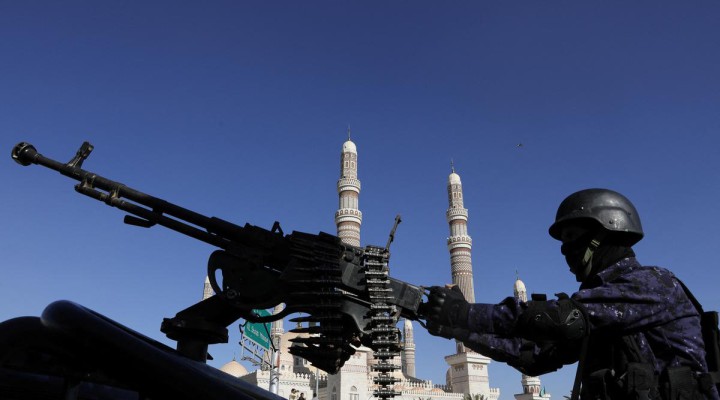Yemen’s fearless escalation

Ansarullah challenge Egypt’s compliance with Israeli Gaza aid curbs
While many Arab governments that possess hundreds of tanks and warplanes have been passively watching Israel’s genocidal war on Gaza, the Yemeni government in Sanaa — though exhausted by eight years of war and suffocating blockade — has taken the lead in acting to oppose it.
Yemeni naval forces responded to Israel’s criminal escalation in the Gaza Strip with a parallel escalation first targeting Israeli-linked commercial shipping, and then the US and UK warships deployed to protect it. The two countries’ threats and their repeated airstrikes on Yemen, including the capital, failed to intimidate the Yemeni leadership or people. They had the opposite effect, prompting an intensification of attacks on ships that do not comply with instructions in the Red and Arabian seas, and then missile strikes on the Israeli-held port of Umm al-Rashrash (Eilat) last Thursday.
On Friday, Abdelmalek al-Houthi, spiritual leader of Yemen’s Ansarullah movement, gave a fiery speech to millions of marchers who have been taking to the streets of Yemeni cities every week in solidarity with the Palestinian people and resistance groups in the Gaza Strip and West Bank. He affirmed that Yemeni naval and land forces would step up their actions in the Red Sea and also introduce their submarine force into the conflict. He hinted that plans were in place for future actions and surprise moves which he could not disclose.
On Thursday, Yemeni military spokesman Yahya Sarie had announced three further operations: a missile strike on a British-owned cargo ship in the Gulf of Aden which set it on fire; the targeting of a US destroyer; and a missile and drone barrage against Eilat that sent thousands of Israeli settlers scurrying into shelters.
History will record with awe this Yemeni courage at a time of Arab silence and collusion, and how the Yemenis dared cross the reddest of red lines by taking action against the warships of the two mightiest empires in modern times: Britain, whose sun has set but remains a powerful force, and the US superpower that wields an arsenal of thousands of nuclear weapons.
The Yemeni armed forces’ next step could be to ‘punish’ the Western powers that have been ‘punishing’ various regional actors for supporting the Palestinian. That may entail moving the battle from the Red and Arabian seas to the coastal waters of occupied Palestine.
That was hinted at by leading Ansarullah figure Ali al-Houthi in his response to Egyptian spokesman Dia Rashwan’s attempt to justify Egypt’s failure to force open the Rafah border crossing to allow in thousands of aid trucks to provide relief to Gaza’s starving children. Rashwan had explained that Israel would bombard any trucks that tried to enter the Gaza Strip without its permission.
Ali al-Houthi’s riposte was, verbatim: “We are willing to send people to escort the trucks and transporters taking food, humanitarian, and medical aid into the Gaza Strip. We have much proven experience in this regard gained during the eight-year war when aid was delivered under bombardment.”
The Egyptian authorities are unlikely to take up this proposal, which is hugely embarrassing for them and exposes their collusion in Israel’s policy of starving the Gaza Strip’s more than two million inhabitants. But it has at least served to call them out and publicly challenge their lame excuses for inaction.
The fearlessness of the Yemenis is legendary. Having defied the US and UK’s armadas, and humiliated Israel by closing the Bab al-Mandeb straight to its shipping without it daring to retaliate, I wouldn’t be surprised if they send their own aid shipments towards Gaza and challenge the Egyptian authorities to let them in via Rafah.
The Yemenis are masters of the impressive surprise. They act as they say, and do as they threaten. I fully expect they will match the Afghans and Vietnamese in giving the US a taste of defeat, one that may be the beginning of the end of its military presence in the region.
https://www.raialyoum.com/yemens-fearless-escalation/
 TheAltWorld
TheAltWorld 
0 thoughts on “Yemen’s fearless escalation”